Publications
Articles, publications, books, tools and multimedia features from the U.S. Institute of Peace provide the latest news, analysis, research findings, practitioner guides and reports, all related to the conflict zones and issues that are at the center of the Institute’s work to prevent and reduce violent conflict.
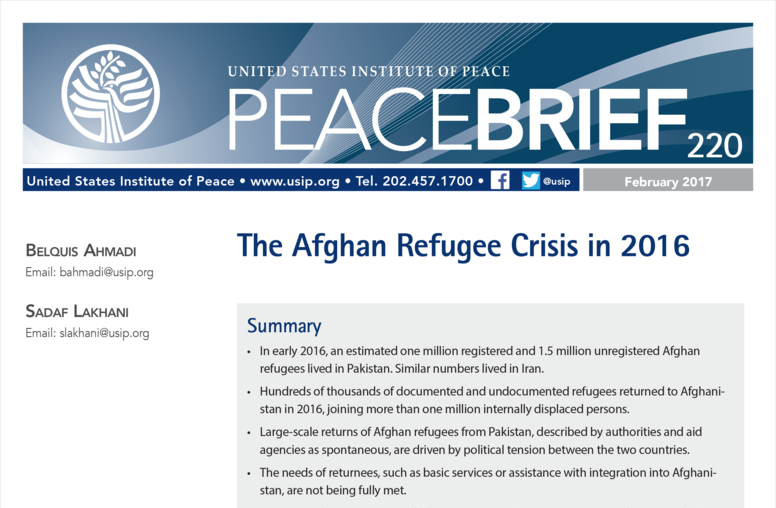
The Afghan Refugee Crisis in 2016
Hundreds of thousands of documented and undocumented refugees returned to Afghanistan in 2016, joining more than one million internally displaced within the country. International agencies warn of a humanitarian crisis that would affect hundreds of thousands of people as returnees struggle to meet basic needs. This Peace Brief provides an overview of the situation at the end of 2016, focusing on those returning from Pakistan, the humanitarian situation, and the security implications of the influx.
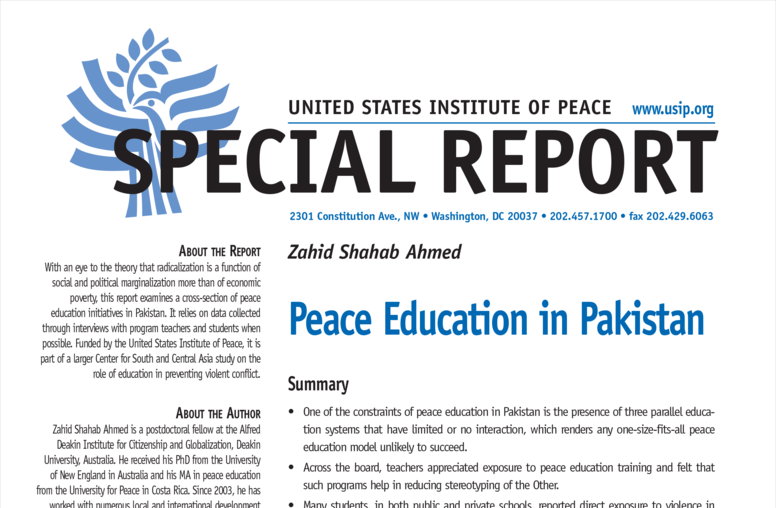
Peace Education in Pakistan
Virtually every country in South Asia faces militancy and conflict to some extent. Pakistan has been especially prone. Peace education addresses the root causes of conflict and is thus a sustainable long-term solution in conflict resolution and prevention efforts. This report examines nine representative peace education initiatives in Pakistan to better understand what types of interventions were most effective, the differences and similarities between peace education programs and curricula in schools and madrassas, and what the peacebuilding field can draw from the selected case studies.
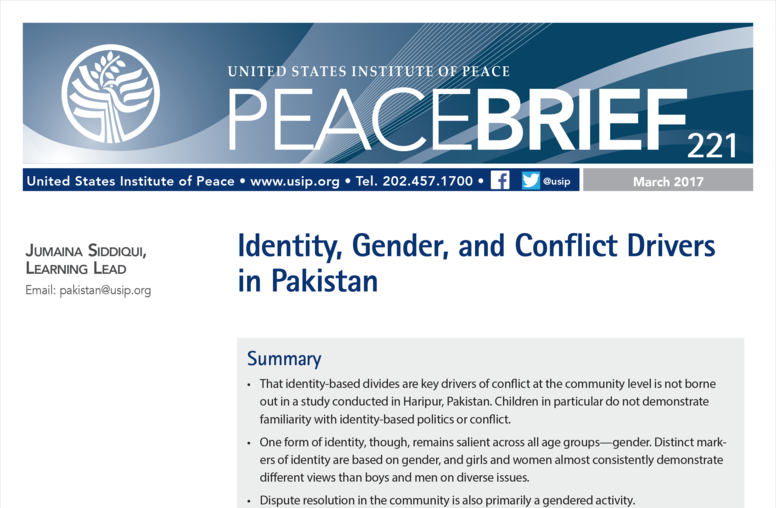
Identity, Gender, and Conflict Drivers in Pakistan
Based on a study conducted in the Pakistani town of Haripur that investigated children’s attitudes toward identity, this Peace Brief finds that identity-based divides are in fact not the primary drivers of conflict at the community level, but notes the continuing salience of gender identity, which produces differing social expectations and differing understandings of conflict resolution roles.
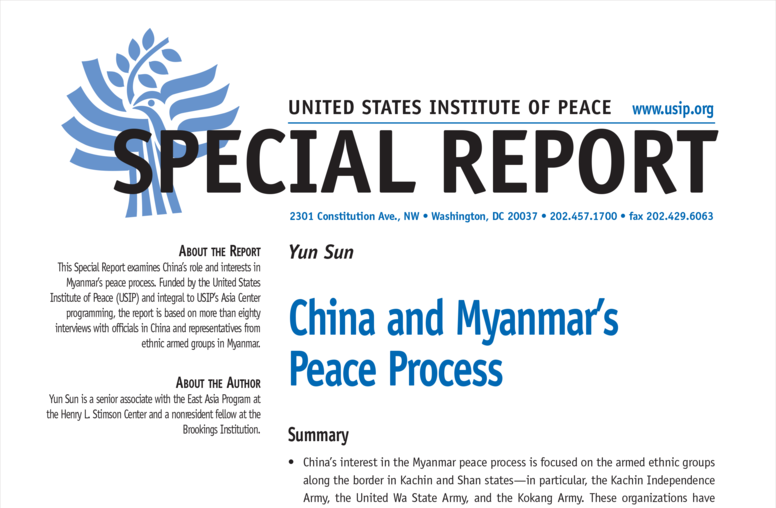
China and Myanmar’s Peace Process
For multiple historical, ethnic, geographic, political, and economic reasons, China has been and will remain an integral player in Myanmar’s internal peace process, particularly regarding the ethnic armed groups in northern Myanmar. Informed by numerous interviews in both China and Myanmar, this Special Report examines China’s positions, policies, and role in that process.
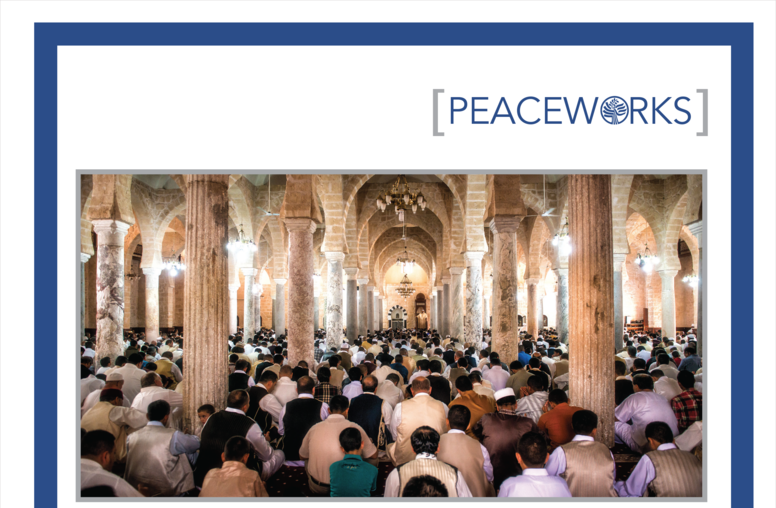
Libya’s Religious Sector and Peacebuilding Efforts
Derived from two surveys conducted in Libya in 2014 and 2016, this report strives to heighten understanding of the country’s religious sector and its impact on governance and society. The findings—which are bolstered by the local knowledge of Libyan researchers—map the major religious trends, institutions, and actors in the country to describe how Libyans perceive the contribution of the religious sector to building peace and fostering justice and democracy.
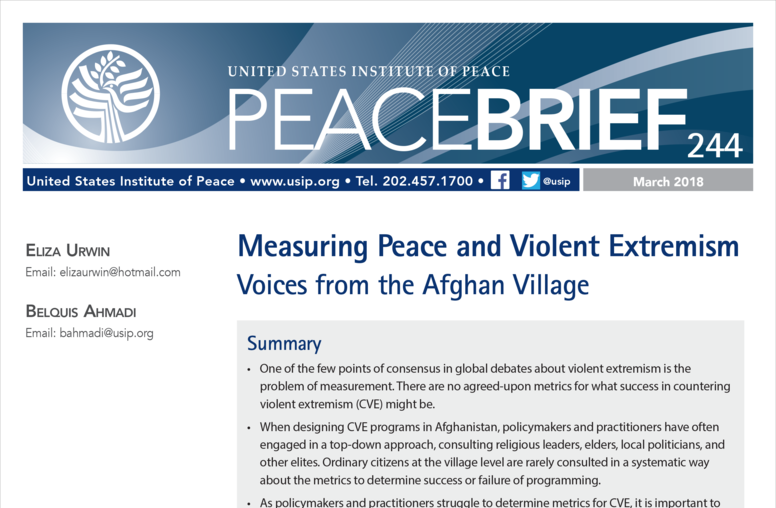
Measuring Peace and Violent Extremism
Policymakers and practitioners have often engaged in a top-down approach in the design of programs to counter violent extremism in Afghanistan. This top-down approach relies heavily on the insights of religious leaders, elders, politicians, and other elites while failing to incorporate...
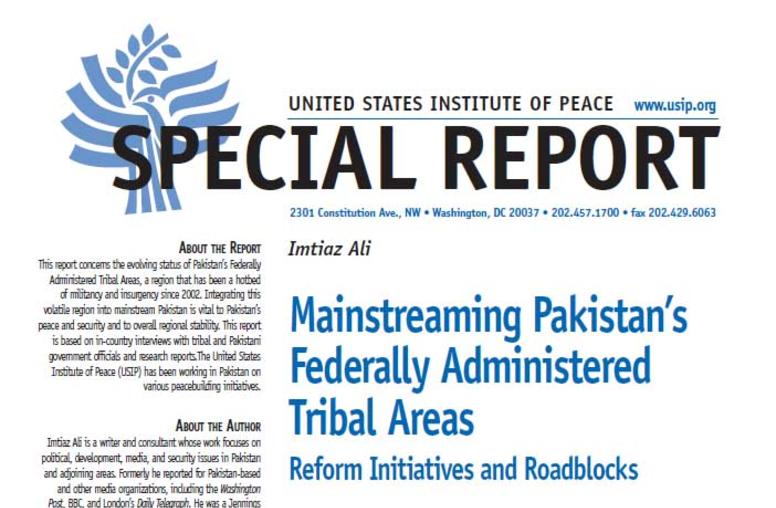
Mainstreaming Pakistan’s Federally Administered Tribal Areas
Pakistan’s government has recently approved mainstreaming of the Federally Administered Tribal Areas (FATA) in an effort to bring the FATA region within the legal and governance structures of the rest
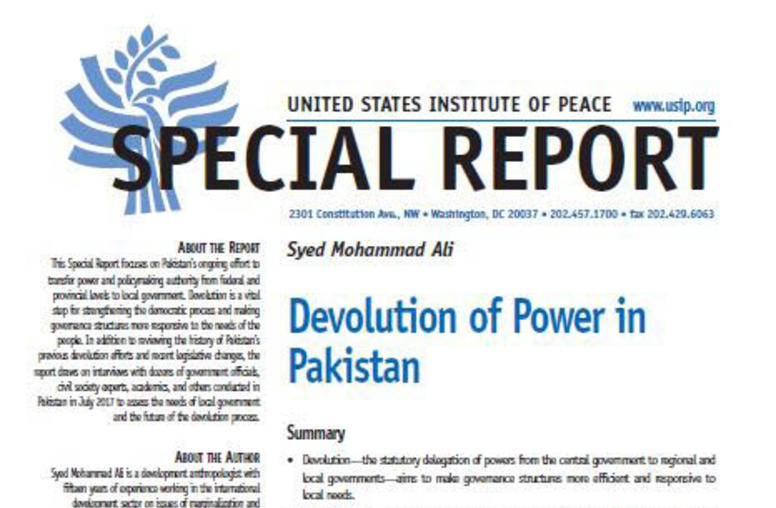
Devolution of Power in Pakistan
Passage of the eighteenth amendment to Pakistan’s constitution in 2010 was rightly hailed as a major accomplishment. Not only did it devolve significant powers from the central government to the provinces, it also mandated the formation of local governments to bring government closer to the people. It took half a decade for the provinces to set up local governments—and real decision-making authority and financial resources have been even slower to arrive. In this Special Report, Syed Mohammad Ali takes stock of Pakistan’s devolution process and why its success is critical to the long-term prospects of democracy and the cultivation of new generations of democratic leaders.
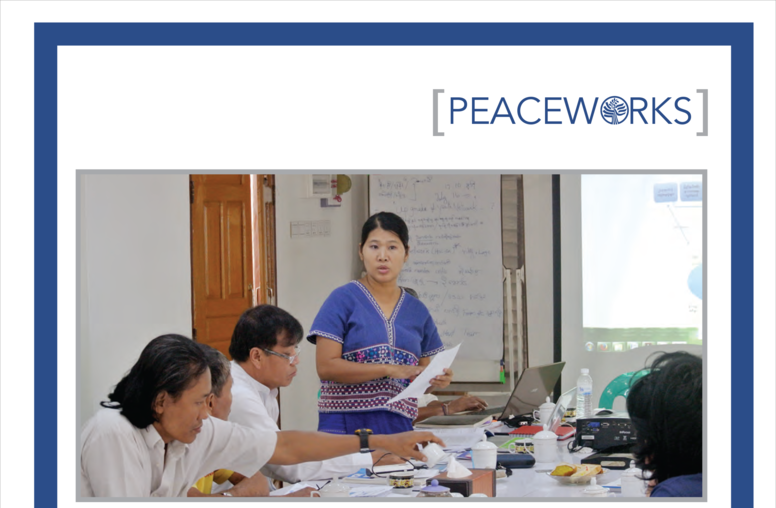
Nonformal Dialogues in National Peacemaking
Nonformal dialogues offer complementary approaches to formal dialogues in national peacemaking efforts in contexts of conflict. As exemplified by the nonformal dialogues in Myanmar, Lebanon, and Nepal examined in this report, nonformal dialogues are able to...
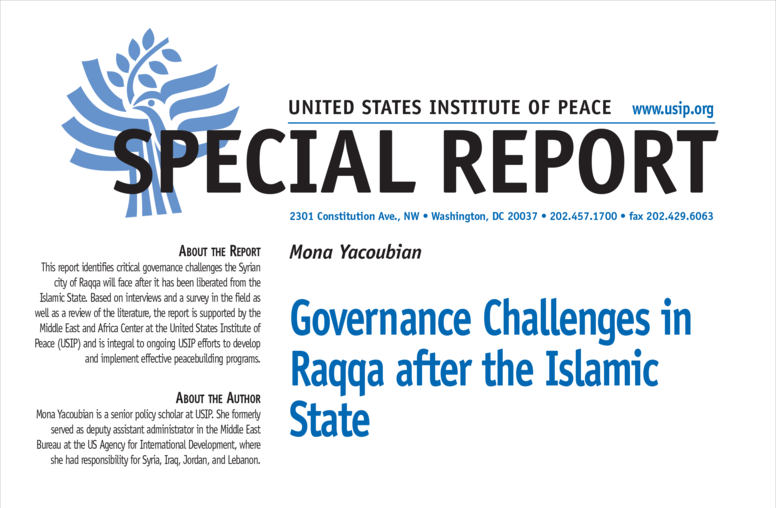
Governance Challenges in Raqqa after the Islamic State
The fall of the Syrian city of Raqqa—the capital of the self-proclaimed Islamic State (IS)’s caliphate—will be a critical defeat for IS. Yet the success of the counter-campaign will ultimately...